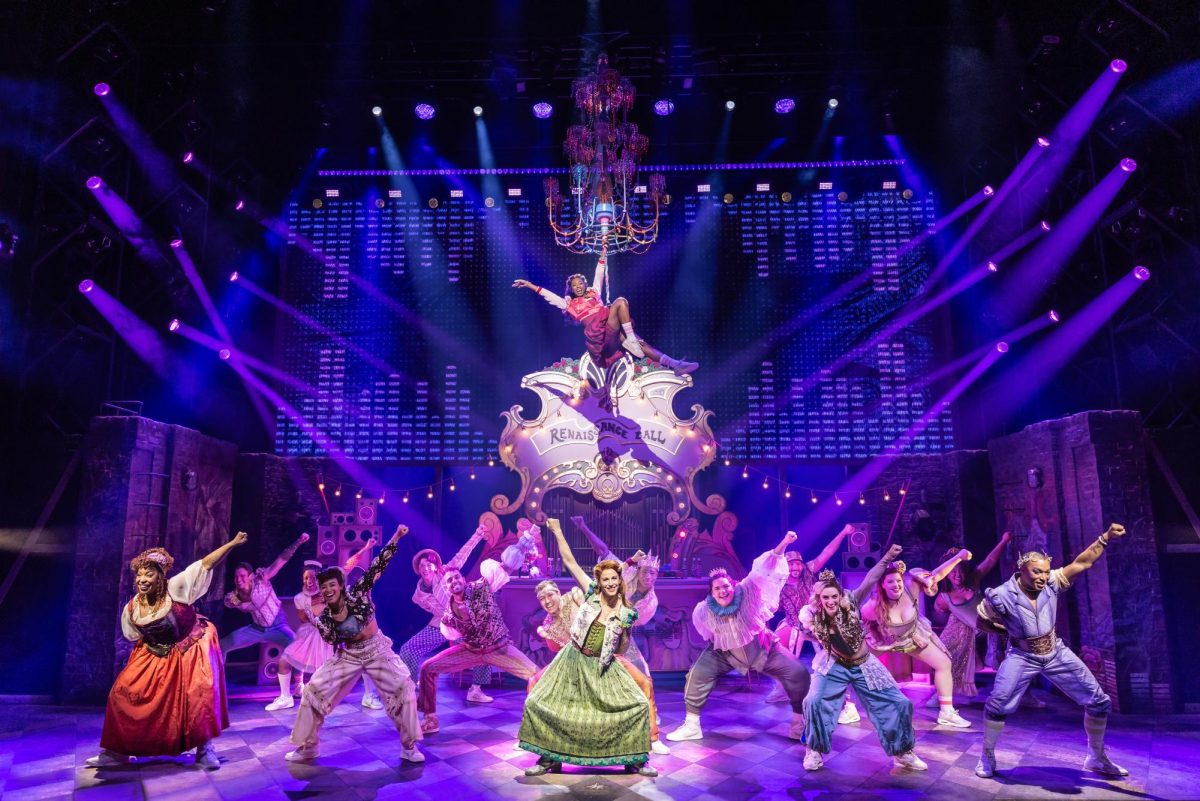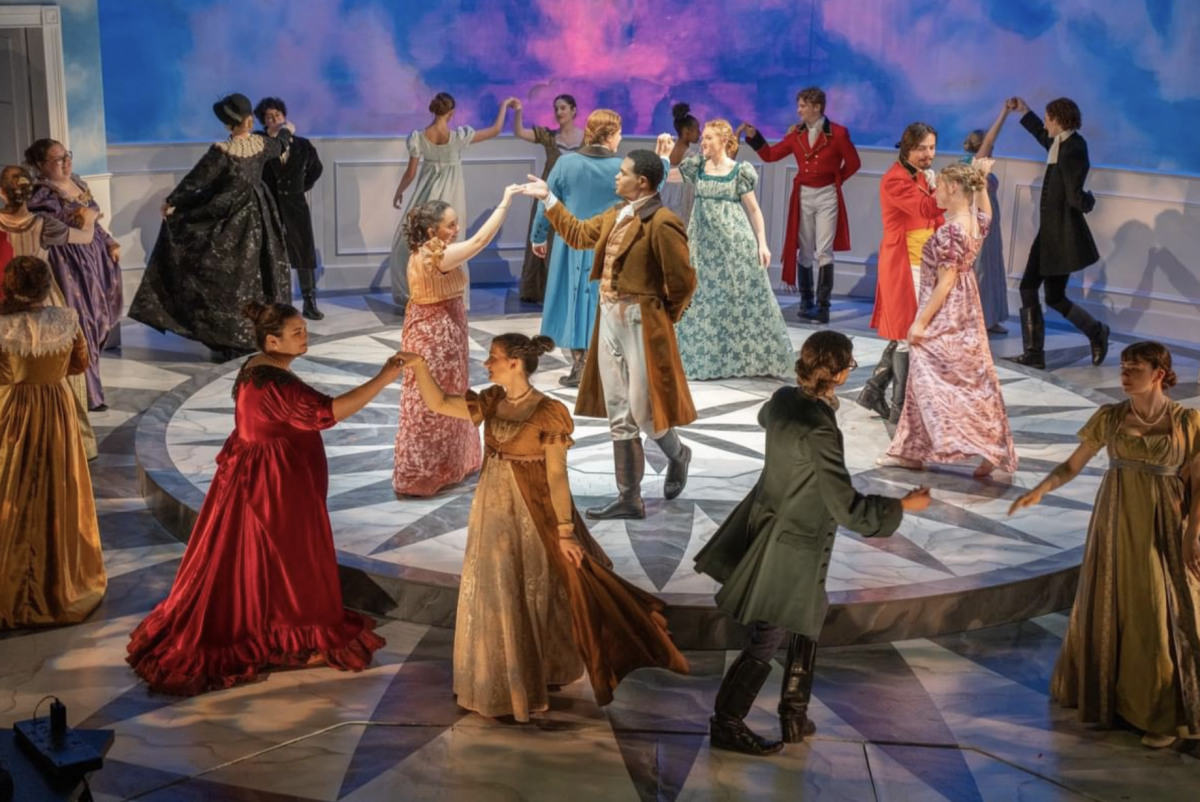Nothing the Wachowski brothers can do will ever make more of a stir than "The Matrix" trilogy. But on "V for Vendetta" the brothers don't even seem to try, putting their signature stamp on a film that lacks their signature touch.
"V for Vendetta" does not mark the return of the creative force that brought you the cultural monster of "The Matrix." The brothers merely wrote the screenplay, basing the script off a graphic novel by David Lloyd.
The movie is yet another tale of rebellion in a futuristic totalitarian society a la "1984," but sets itself apart through a strong connection to the past. The film opens with the controversial premise that Guy Fawkes, who attempted to blow up the British Parliament in 1605, was actually a genius. A masked rebel named V (Hugo Weaving, "The Matrix") is trying to complete his work in a modern British state led by Hitler-like figure Adam Sutler (John Hurt, "The Skeleton Key"), aided by an orphaned young professional named Evey (Natalie Portman, "Closer").
The Guy Fawkes mask V wears is just the right symbol for the character and the movie, which would seem to promote terrorism as a viable solution to bad government. It's slightly creepy, yet both evil and good at the same time.
The Wachowskis left the directing up to first-time feature-film director James McTeigue, who does a remarkable job of reining in the Wachowski's often-melodramatic lyricism. With McTeigue at the helm, the pop-art symbolism of the graphic-novel genre comes across in full glory.
Much like Frank Miller and Robert Rodriguez did with "Sin City," McTeigue uses dramatic colors and carefully constructed motifs to give the film a creepy-cartoonish ambience. Near the climax of the movie, the director masterfully uses an out-of-time sequence of V setting off chains of dominoes to mirror a sea of rioting urbanites.
But while the graphic-novel melodramatics of "Sin City" came across as fresh and gritty, in "V for Vendetta" they just seem overdone. The Wachowski brothers' adaptation is clumsy in more ways than one, simultaneously failing to match the subtlety of the first “Matrix” film and the over-the-top attitude of the graphic-novel genre.
It's an unfortunate trend with the Wachowskis' work, as each installment of "The Matrix" trilogy was less subtle and more toothless than the last. The decline has continued with "V for Vendetta," where the screenwriting is at times downright clunky.
None of V's lines cut as deep as the Wachowskis seem to want them to, despite the abundance of great material to draw on.
Here, the works of Shakespeare replace Lewis Carroll's “Alice in Wonderland” stories as the main source of cool lines in the film. But Weaving's rapid-fire spouting of iambic pentameter gives the viewer the unavoidable sense that the Shakespearean quotations are just a lot of cinematic hot air. It doesn't help that Evey identifies each quote with English professor-like ease.
Portman's character gets a lot of clunker lines throughout the film, which raises the boring factor of her acting considerably. Since "V for Vendetta" features a lot more dialogue than your average action movie, watching Portman struggle through bad writing gets old fast.
It can be a good thing to add non-action scenes to an inherently action-packed movie, but only if you have good dialogue to fill the gaps. In the case of "V for Vendetta," a lot of the film between the action scenes should never have left the editing room.
The first scene cut ought to have been the one in which Evey kisses V through his ever-present mask. The scene wasn't supposed to be funny, but it provoked outright laughter from the audience.
What McTeigue lacks in editing skills he makes up for during the action sequences, especially on the final showdown. We see firsthand when the bad guy runs out of ammo as McTeigue frames V in the empty chamber of a six-shooter, much like the James Bond intro where the viewer sees Bond through a rifled gun barrel. He tips his hat to the Wachowskis at the same time, shooting the motion of V's knives much like the slow-motion bullets in "The Matrix."
Unfortunately, the character development doesn't live up to the action. The film often presents characters all at once, not allowing the audience time to despise or empathize with them. One minute the audience doesn't even know a character exists, and the next minute that character is a major part of the story. A few minutes after that, the character is out of the movie for good.
Even the characters that are present through the whole movie are underdeveloped. Government Inspector Finch (Stephen Rea, "Breakfast on Pluto") is supposed to undergo a gradual conversion to V's side, but his sympathies are so obvious from the start that it doesn't really count as a crucial change at all. In fact, the character really serves no purpose in the movie except to explain some of the back story.
The only truly compelling actors are V and the scheming right-hand man Creedy (Tim Pigott-Smith, "Alexander"). Weaving is surprisingly expressive for a man behind a mask, conveying V's sadness, happiness and inner turmoil through body position alone, while Creedy is just downright frightening.
All things considered, the acting and screenwriting are nothing to write home about. But the directing is good and the movie stands up well in comparison to other blockbuster fare. Once you draw the inevitable comparisons to "The Matrix," it's clear that the Wachowski brothers have made a half-assed comeback.
Rating: 4 out of 5







